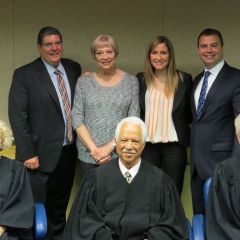ISBA Statehouse Review for the week of May 21
ISBA Director of Legislative Affairs Jim Covington reviews bills in Springfield of interest to ISBA members. In this episode he covers Tort cases and settlement problems (Senate Bill 1912), Filing fee increase (House Bill 2327), Visitation (House Bill 2992), Fraudulent real estate documents (House Bill 2832), Access to Justice Act (House Bill 3111), Collection procedures (Senate Bill 1044), UM coverage (Senate Bill 1898) and FOIA (House Bill 2747). More information on each bill is available below the video.
Tort cases and settlement problems. Senate Bill 1912 (Raoul, D-Chicago; Sims, D-Chicago) amends the Code of Civil Procedure to create an enforcement mechanism for cases that settle but the defendant won’t comply with the settlement. It is limited to cases seeking money damages involving personal injury, wrongful death, or tort action. It requires a settling defendant pay all sums due to the plaintiff within 21 days of tender of all applicable documents required under this new Section.



 Round Lake Park Police Chief George Filenko (middle) received the 2013 Law Enforcement Award from the Illinois State Bar Association (ISBA) at a luncheon and awards presentation held during National Crime Victims’ Rights Week, on April 23, at the Gurnee Park District, Viking Park Hall, in Gurnee. ISBA Executive Director Robert Craghead (left) presented the award.The event was sponsored by the Lake County State’s Attorney’s Office and the Lake County Chiefs of Police Association.
Round Lake Park Police Chief George Filenko (middle) received the 2013 Law Enforcement Award from the Illinois State Bar Association (ISBA) at a luncheon and awards presentation held during National Crime Victims’ Rights Week, on April 23, at the Gurnee Park District, Viking Park Hall, in Gurnee. ISBA Executive Director Robert Craghead (left) presented the award.The event was sponsored by the Lake County State’s Attorney’s Office and the Lake County Chiefs of Police Association.